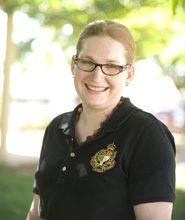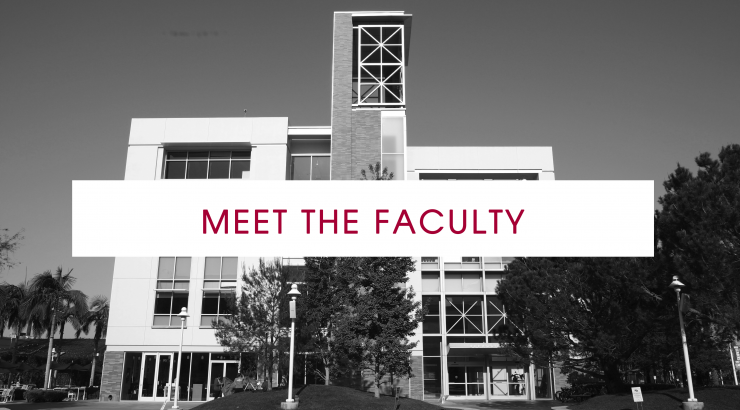Meet the Faculty: Dr. Darcy K. Fudge Kamal Assistant Professor of Strategic Management
January 17, 2019
 Darcy K. Fudge Kamal is an Assistant Professor of Strategic Management at the Argyros School of Business and Economics at Chapman University. She received her Ph.D. from the University of Minnesota, Carlson School of Management. Prior to entering academia, she worked in the telecom services industry in Canada conducting market research and business intelligence to support strategic planning at MTS-Allstream.
Darcy K. Fudge Kamal is an Assistant Professor of Strategic Management at the Argyros School of Business and Economics at Chapman University. She received her Ph.D. from the University of Minnesota, Carlson School of Management. Prior to entering academia, she worked in the telecom services industry in Canada conducting market research and business intelligence to support strategic planning at MTS-Allstream.
Darcy’s research interests include how trust, strategic alliances, and buyer-supplier relationships improve firm performance. She studies unconventional industries such as the Thoroughbred horse industry. She has published work in premier journals such as the Journal of International Business Studies, the Journal of Business Logistics, Organization Science, Journal of Economic Behavior and Organization, Strategic Organization, and PloS ONE.
Darcy has earned several awards, including two teaching awards for courses in strategic management.
Q&A with Darcy
What is the research or publication you’re most proud of completing?
In our work featured in Organization Science, we theorize and find empirical support for differences in predictors of trust in established buyer-supplier relationships. In our study, the predictors for buyer’s trust in their supplier organization differ from the predictors of supplier’s trust in their buyer organization. Our work calls into question longstanding theorizing that equal relationships are successful and imbalanced relationships are unsuccessful.
McEvily, B., Zaheer, A. and Fudge Kamal, D.K., 2017. Mutual and exclusive: Dyadic sources of trust in interorganizational exchange. Organization science, 28(1), pp.74-92.
As a follow on, now forthcoming work in Strategic Organization, my co-authors and I call into question the pervasiveness of the assumption that alliances and buyer-supplier relationships need to be equal to be successful.
Graebner, M.E., Lumineau, F. and Fudge Kamal, D., forthcoming. Unrequited: Asymmetry in interorganizational trust. Strategic Organization.
What is the most important lesson you hope students walk away from your class(es) with?
To identify and exploit their own (and their organization’s) distinctive competence. Each student builds a network of business relationships during their time here in the business school, this social complexity derived from their network is different for each of them and can set them ahead for the rest of their careers. For the organizations they represent, I hope they remember, relationships such as alliances and repeated contracts can be a powerful source of competitive advantage.
What makes your class different and/or Why should students take your class(es)?
I incorporate my latest ideas from my research into the classroom. One industry that I study is the Thoroughbred horse industry, a $100 billion industry in the USA. I like to use examples from this industry, and even take students on field trips to our world-class local racetracks to hear from industry stakeholders first-hand. Generally, I have a preference for using case examples of privately held companies like eHarmony and Mobileye. Alliances can often be an attractive way of gaining access to resources that firms can’t possess on their own. These case studies tend to emphasize the strategic value and challenges of using relationships to establish or sustain a competitive advantage.
What’s the accomplishment you’re most proud of in your career or what goal are you working toward?
Involving my students in scholarly research. It’s amazing to bring students with me to academic conferences and for them to engage in conversations about business with a research lens. My mentor in my undergraduate program encouraged me towards a career in research this way. I’d like to think I’m able to pay it forward. Right now, one of our students is applying to Ph.D. programs –publishing research with a former student would be incredible.
